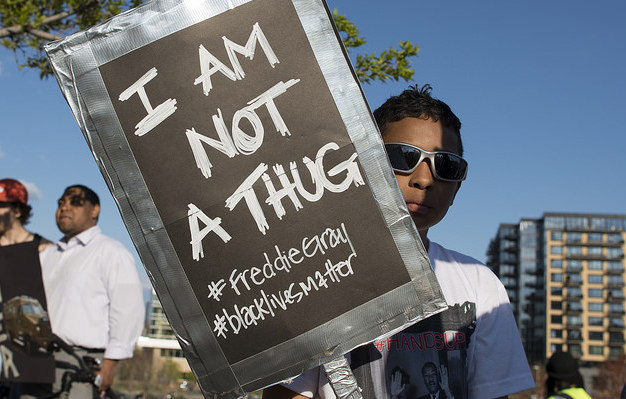
As the nation’s gaze is set on Baltimore, sociologists have begun to talk to the press about the massive peaceful protests, outbreaks of rioting and violence, and media depictions of the city as it mourns the death of Freddie Gray (as of today, Friday, May 1, ruled a homicide and under investigation). Much of the emerging public criticism is aimed at media sources and public officials depicting protests as nothing but violent, unfounded riots led by “thugs.” Stefanie DeLuca sees these language choices as important, telling the Washington Post,
I thought the governor calling Baltimore a “state of emergency” was a colossal fail. These framings don’t help us—they take away from the humanity of the people here who have grievances. It takes away from the incredible potential of a city that has been struggling and fighting for everything it has.
Paul Bagguley, whose work focuses on race and social movements, also spoke to the Washington Post, contributing to a piece on looting during riots. He focused specifically on how small outbreaks of crime can happen once large-scale, otherwise civil protests become riots:
During riots, the normal rules of behavior are suspended—participants often describe a sense of freedom—so that normal respect for private property is suspended. In addition, contemporary societies are consumer societies where one’s status and participation in society is defined by consumer goods, hence those excluded from consumption—the poor—are during riot conditions able to obtain valued items.
Other sociologists spoke more broadly to the systemic inequalities that have long divided Baltimore and put men like Freddie Gray in increasingly subjugated, vulnerable positions. In a recent article at Mother Jones, Peter J. Cookson explained how it’s not just physical segregation that creates and reifies inequalities in health, wealth, education, and incarceration, but also disparities in housing safety, extracurricular activities, and educational programs in schools.
In an Op-Ed for The Tennessean, Tony Brown suggests paying closer attention to the evidence of ongoing racism in everyday American life:
We must document the significance of race and racism before we can address it. Make it routine to collect evidence that allows us to address it. Otherwise, we are bound to run in circles debating whether a problem exists, while things get worse.

Comments 2
pthrelfall — May 1, 2015
"BEGIN" to talk? I don't think they just started talking...a few folks started listening. I take real issue with this headline. sorry.